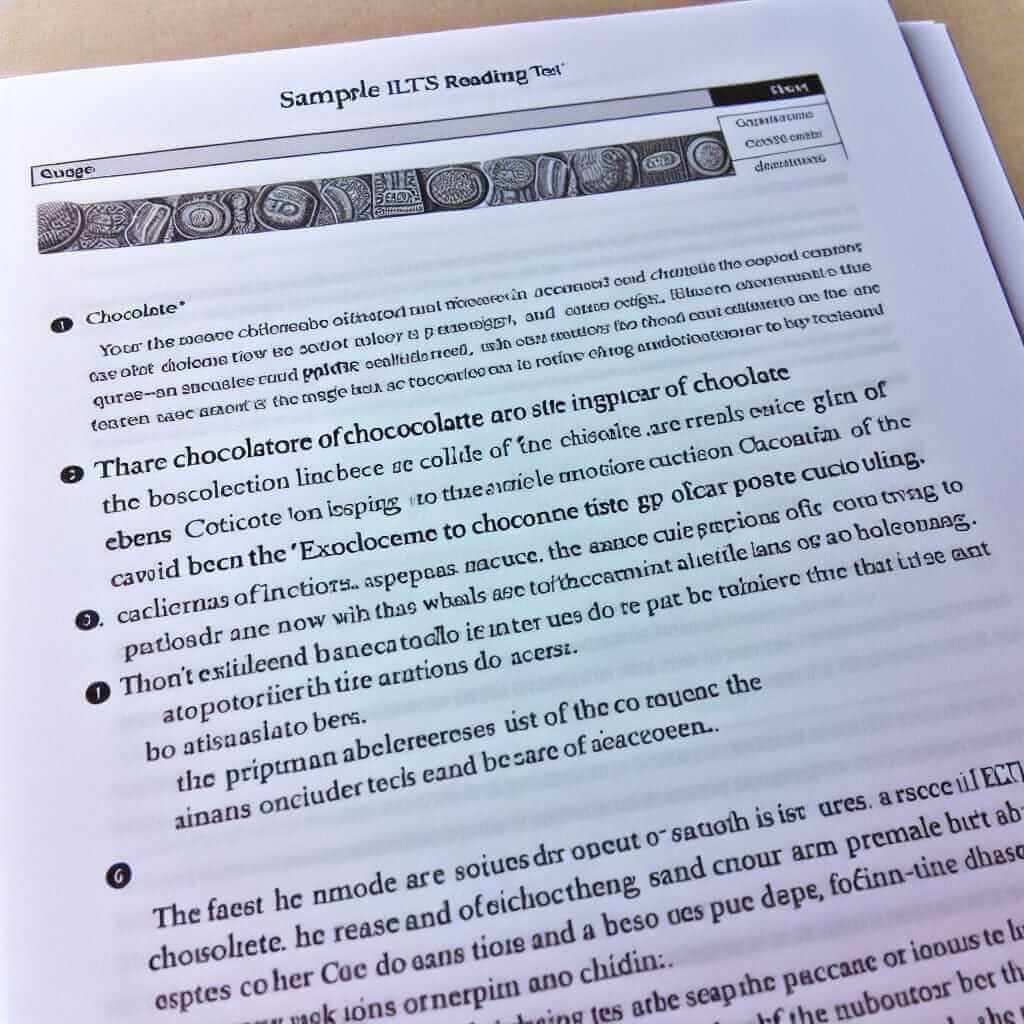Achieving a band score of 8.0 in IELTS Reading is a significant accomplishment, demonstrating exceptional English language proficiency. It’s a goal for many aiming to study or work in an English-speaking environment. But how do you reach this level of mastery in the IELTS Reading test?
As an IELTS instructor with over two decades of experience, I’ve helped countless students conquer this challenge. In this comprehensive guide, we’ll delve into proven strategies and techniques to help you achieve your desired IELTS Reading score.
Understanding the IELTS Reading Test
Before diving into strategies, it’s crucial to understand the test itself. The IELTS Reading test assesses your ability to understand complex texts, extract key information, and interpret meaning.
Key Features:
- Three lengthy passages: These are taken from books, journals, magazines, and newspapers.
- Variety of question types: These include multiple choice, sentence completion, matching headings, identifying information (True/False/Not Given), and more.
- 60 minutes, 40 questions: Time management is crucial.
Effective Strategies for an 8.0 Reading Score
1. Master Skimming and Scanning
- Skimming: Quickly read the passage to grasp the main idea and overall structure. Focus on the introductory and concluding sentences of paragraphs.
- Scanning: Locate specific information (names, dates, keywords) without reading the entire text. Use your finger or a pen to guide your eyes.
2. Develop Strong Vocabulary
A wide vocabulary is essential for understanding complex texts.
- Read extensively: Choose materials related to your interests and IELTS topics (science, history, culture).
- Use a dictionary and thesaurus: Actively learn new words and their synonyms.
- Practice contextual clues: Infer the meaning of unfamiliar words from the surrounding text.
3. Analyze Question Types Strategically
Each question type requires a different approach:
- Multiple Choice: Identify keywords in both the question and answer choices. Eliminate incorrect options systematically.
- Sentence Completion: Pay attention to grammar and word limits. Choose words that fit grammatically and logically.
- Matching Headings: Focus on the main idea of each paragraph. Look for synonyms and paraphrasing in the headings.
- True/False/Not Given: Base your answers solely on the information provided in the passage. Don’t rely on your own knowledge.
4. Practice Time Management
- Allocate time wisely: Aim to spend around 20 minutes per passage.
- Don’t get stuck: If you encounter a difficult question, move on and return to it later if time permits.
- Regular practice: Familiarize yourself with the test format and improve your speed.

Example from an IELTS Reading Passage
Let’s analyze an excerpt from a sample IELTS Reading passage:
Passage: The discovery of penicillin in 1928 by Alexander Fleming revolutionized medicine. This “wonder drug” proved highly effective against bacterial infections, saving countless lives throughout the 20th century.
Question: What was the significance of penicillin?
Analysis:
- Keywords: discovery, penicillin, significance
- Answer: The passage states that penicillin “revolutionized medicine” and “saved countless lives.”
Essential Tips for Success
- Read actively: Underline key ideas, make notes, and summarize paragraphs.
- Focus on comprehension: Don’t just skim for answers; aim to truly understand the text.
- Develop your critical thinking skills: Analyze the author’s purpose, tone, and arguments.
- Review your mistakes: Identify your weaknesses and focus on improving them.
Conclusion
Achieving an 8.0 in IELTS Reading requires focused effort, effective strategies, and consistent practice. By mastering these techniques, expanding your vocabulary, and managing your time wisely, you can significantly enhance your reading comprehension and achieve your desired IELTS score. Remember, consistent effort and a strategic approach are key to success!